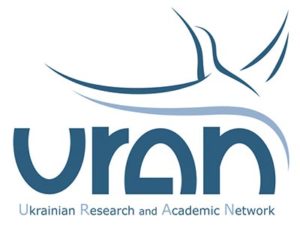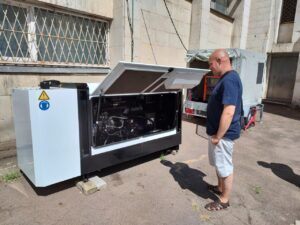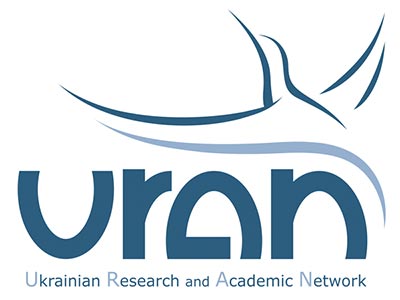 The ongoing war in Ukraine has severely impacted the country’s infrastructure, including its research and education network. Despite these challenges, URAN, Ukraine’s National Research and Education Network has managed to sustain essential services for universities and research institutions, with significant support from the EaPConnect project and European partners, including GÉANT.
The ongoing war in Ukraine has severely impacted the country’s infrastructure, including its research and education network. Despite these challenges, URAN, Ukraine’s National Research and Education Network has managed to sustain essential services for universities and research institutions, with significant support from the EaPConnect project and European partners, including GÉANT.
Strengthening Ukraine’s Digital Infrastructure
EaPConnect has been instrumental in enhancing Ukraine’s research and education infrastructure by supporting URAN with high-speed, secure connectivity. Through EaPConnect Ukraine benefits from a high-capacity spectrum link connecting Moldova and Ukraine to the GÉANT network. This link has a capacity of 100 Gbps, which can be upgraded to 400 Gbps. Additionally, URAN offers a range of digital services by GÉANT, including eduroam, eduMEET, eduGAIN, and eduVPN, which are helping to integrate Ukrainian researchers, educators, and students with the global academic community.
Impact of the War on Network Operations
The risks posed on URAN’s operations by the war are considerable and significant: missile strikes, drone attacks, and frequent blackouts caused by targeted assaults on Ukraine’s energy infrastructure have disrupted network stability.
As of October 2024, prolonged blackouts have been caused by the destruction of the country’s thermal and most hydroelectric power plants, along with many transmission facilities. Until the power engineers can restore the grid after each attack, electricity is available for only 4 hours a day, which may persist for several days. In some cases, there may be no electricity for days at a time.
For instance, Kyiv experiences cycles of 6-7 hours without power, followed by 2-3 hours of electricity, with this pattern repeating for days.
Responding to Power Outages

The destruction of Ukraine’s energy infrastructure has resulted in prolonged blackouts. To ensure continuity, URAN has relied on diesel generators. In the autumn and winter of 2022, an old generator proved unreliable, but by January 2023 it was replaced by a new generator funded by GÉANT NRENs through the Vietsch Foundation. A new larger generator, also funded by the Vietsch Foundation and installed in mid-2024, is now the primary unit, with both generators serving as backups to enhance URAN’s resilience and ensure network functionality during extended power outages.
Supporting Evacuated Universities and Expanding eduroam
As some Ukrainian universities were forced to evacuate, URAN played a key role in ensuring their continuity. For example, Kherson National Technical University relocated to Western Ukraine and received URAN’s assistance in setting up network connections and providing necessary equipment.
URAN also expanded the eduroam service, allowing thousands of displaced students and staff to access academic resources from different locations, ensuring continuity of education across the country.
Cybersecurity Challenges
The intensity of the war has resulted in a surge of cyber-attacks targeting Ukraine’s digital infrastructure. URAN faced a large number of Distributed Denial of Service (DDoS) attacks on critical websites. In response, the network implemented a range of security measures, including CloudFlare, UDP firewall rules, and BGP blackhole routes. Collaboration with Ukraine’s cyber police and military cyber units also provided vital insights, enhancing URAN’s ability to counter emerging threats.
The frequent power outages also disrupted URAN’s internal network monitoring system, complicating the detection and resolution of issues. To overcome this, URAN adopted GÉANT’s Network Management as a Service (NMaaS), a cloud-based platform enabling remote network monitoring and management. This solution created an out-of-band environment, ensuring the network could be monitored and maintained even during the most challenging circumstances.
Resource Migration and International Support
Frequent missile strikes and power outages have endangered Ukraine’s IT infrastructure. With support from the GÉANT community, Ukrainian institutions have been able to migrate resources and data to safer locations abroad. NORDUnet provided disk space for backups, while GÉANT and the OCRE project facilitated the deployment of virtual machines at AWS and Microsoft Azure data centres in Europe, safeguarding critical research and academic data.
Human and Financial Challenges

The war has taken a heavy toll on the URAN team. Operating under constant threat of missile and drone attacks, staff have faced physical and mental strain. In Kyiv, where URAN’s headquarters are located, daily air raid alerts and nighttime attacks disrupt both work and rest, forcing staff to seek shelter in basements and corridors.
The stress of living in such conditions has led to significant exhaustion, but mutual support, regular communication, and personal coping mechanisms, such as spending time with family and pursuing hobbies, have kept the team going.
Financially, the war has strained both URAN and its users. Budget cuts at universities and research institutions have led to limited service requests, impacting international cooperation and reducing extensive research activities. This, in turn, has affected URAN’s financial stability, as it depends on service fees rather than government funding. To address these challenges, URAN has introduced flexible cooperation options, offering free access to essential services such as eduroam and eduGAIN, in addition to the annual subscription to the URAN network.
International Cooperation: A Lifeline for URAN
Support from the EaPConnect project and European partners has been vital in ensuring URAN remains operational. Donations to the Vietsch Foundation have enabled the purchase of generators, sustaining the network during blackouts.
Funds from the Vietsch Foundation also supported the Computer Aid initiative, which provided refurbished laptops to URAN users most affected by the war. URAN received 170 laptops through two shipments from the UK, which were distributed to universities and research institutions in areas heavily shelled by Russian forces, as well as to institutions relocated from occupied territories. These laptops have been essential in ensuring continued academic work during the war.
Resilience and Collaboration
The war has presented numerous challenges for URAN, from ensuring network stability amid power outages to supporting evacuated universities and navigating financial constraints. However, through resilience and international cooperation, URAN has been able to maintain its essential services, ensuring that Ukraine’s research and education community stays connected to the global academic network. Ongoing support from EaPConnect and the GÉANT community will be vital in overcoming future challenges and sustaining Ukraine’s research and education infrastructure. With continued unity and determination, Ukraine’s academic sector will persevere, even in the face of adversity.



